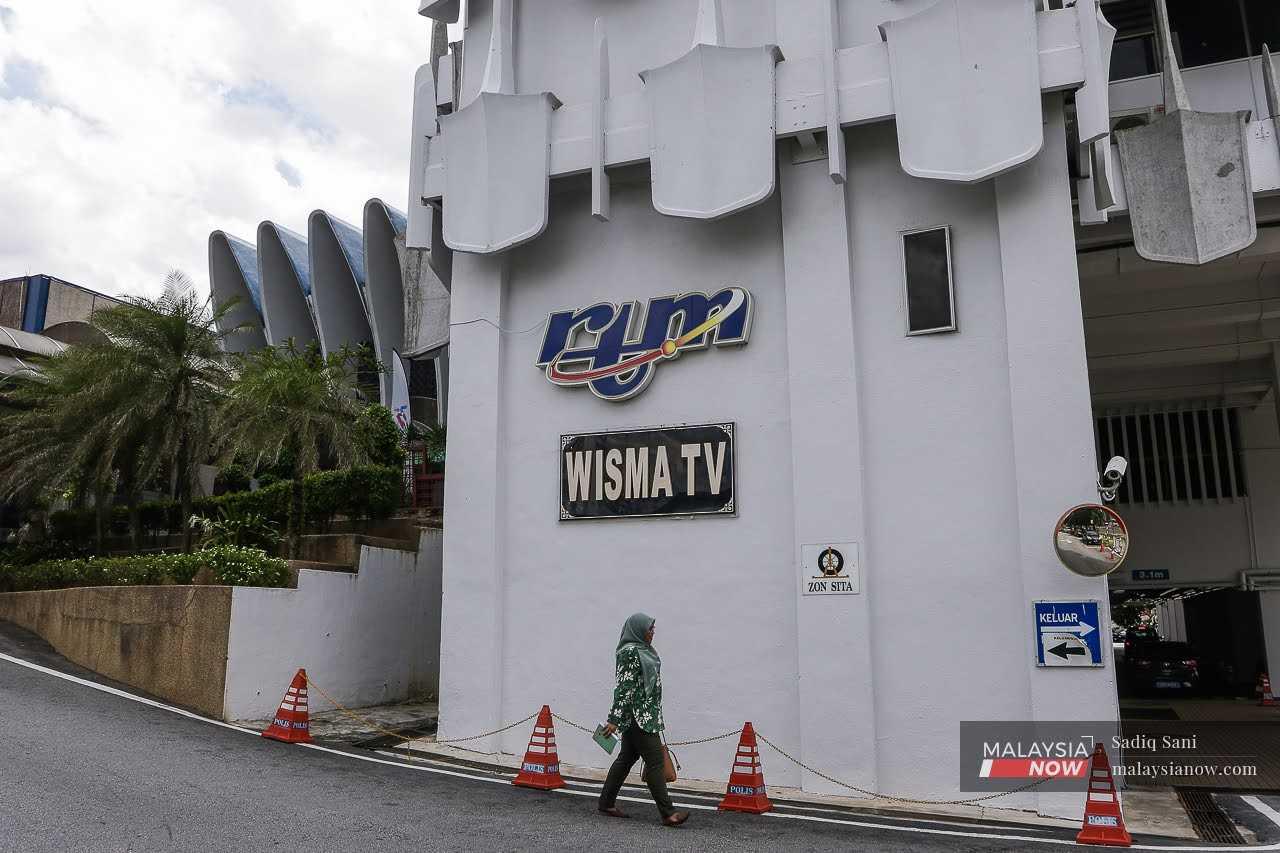'Content, content, content': The place of Malaysia's oldest broadcaster in a digital world
MalaysiaNow speaks in an exclusive interview with RTM director-in-chief Suhaimi Sulaiman about public perception and operations at the national broadcaster.
Just In
Suhaimi Sulaiman was enjoying life after retirement when he received a phone call one day asking him to come back to work in the world of local television broadcasting.
At 61, Suhaimi had spent more than three decades in the fields of journalism and broadcasting.
He returned from retirement to a new career as the director-in-chief of state-owned television station Radio Televisyen Malaysia, popularly known as RTM.
It was a good transition for Suhaimi, who was already familiar with many of the people in his office, especially the reporters he had known during his time as a journalist.
And despite being their new chief, he placed no initial expectations on the work of his staff.

He is aware of the public perception of RTM as an outdated form of broadcasting, appealing only to those in the older generation and offering little to the youth.
But according to him, the data and reports he receives tell a different story.
RTM is in fact more popular with younger users below the age of 35, he says, with the most views on TikTok.
Most recently, the live broadcast of Malaysia's football match against Vietnam in conjunction with the 2023 SEA Games, for example, had more than 1.1 million views on the social media platform.
Of these, 64% of the viewers were under 32 years of age.
"We live in an age where people no longer just sit at home and watch TV," Suhaimi said in an exclusive interview with MalaysiaNow.
"This is now the reality of the broadcasting industry in Malaysia: people want to watch content. In the car, in the office, anywhere and everywhere, people are watching content."
This is why Suhaimi has come up with a new management system for television shows, geared towards the digitisation of RTM streams.
It is also a step towards rejuvenating the principles of RTM broadcasting, to give it a new lease of life in the industry.
One example of this is Kanta 744, a concept for simple, compact news that runs for 15 minutes before primetime news begins at 8pm.
Each headline is allotted just 15 seconds, and the news – national, economy, world, sports and entertainment – is presented by young and fresh personalities.
RTM direction?
RTM, the oldest public broadcasting station owned by the government, was established on April 1, 1946.
Headquartered in Angkasapuri Kuala Lumpur, it operates six national radio channels, 13 state and regional radio channels, and six television channels.
Each broadcasting station is expected to have its own identity, without relying on certain moulds.
"Maybe we can take some ideas to improve the content that is already in place," Suhaimi said when referred to broadcasters such as BBC in Britain and South Korea's KBS.
"But we are the ones who must define our direction. We need to know who our audience is and what they want."

As for the political changes that have taken place since the 14th general election in 2018, Suhaimi said these had not had much of an effect on RTM's policies and internal operations.
As civil servants, he said, RTM staff see things differently from the public perception of the broadcaster as a government propaganda unit.
For them, he added, the job is to develop the country and help the people.
He said these efforts could be seen in the segments aired by RTM, including documentaries, educational programmes, and community enterprises.
"It's not about a purely political approach. What's important is the content which must be appropriate and relatable.
"We have to choose wisely where our expertise lies," he said.
On questions regarding media freedom, a hot topic since the establishment of the latest government under Prime Minister Anwar Ibrahim, Suhaimi said that anyone who wished to develop the country and the nation would be assured of a place at RTM – with the caveat that this must be done without disrupting stability and national harmony.
"For instance, there were reports that an artist was axed from a programme for supporting a certain political party," he said.
"But was she given air time during the Raya celebrations? She was.
"Individuals will be given a place if they truly desire to move in this direction."
Subscribe to our newsletter
To be updated with all the latest news and analyses daily.
